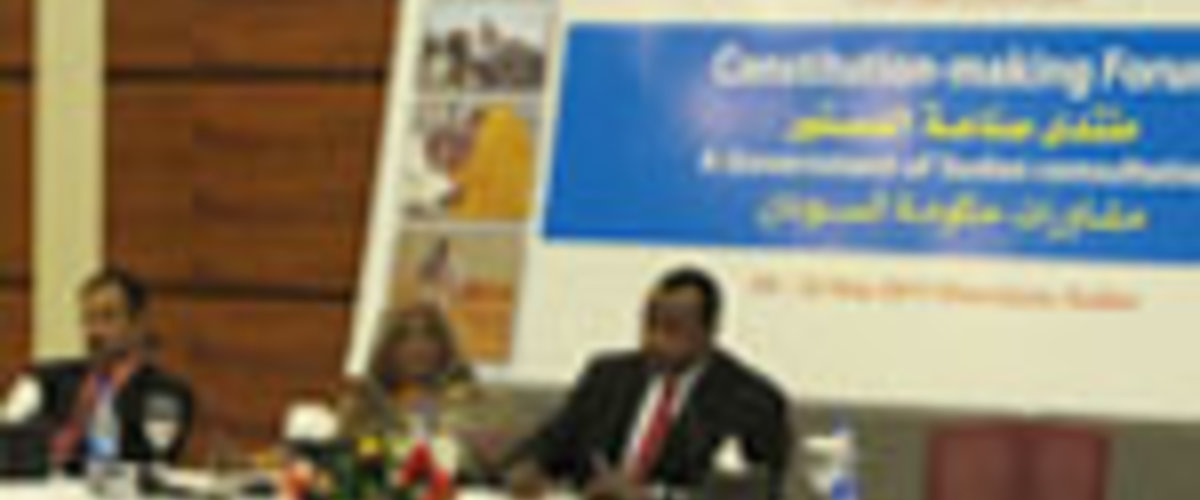Closure of UNMIS
UNMIS wound up its operations on 9 July 2011 with the completion of the interim period agreed on by the Government of Sudan and Sudan People’s Liberation Movement in the Comprehensive Peace Agreement (CPA), signed on 9 January 2005.
The mission ended its six years of mandated operations the same day South Sudan declared independence, following a CPA-provided referendum on 9 January 2011 that voted overwhelmingly in favour of secession.
In support of the new nation, the Security Council established a successor mission to UNMIS – the UN Mission in South Sudan (UNMISS) – on 9 July for an initial period of one year, with the intention to renew for further periods as required.
26 May
2011
25 May 2011 - Government and civil society members discussed key issues that Sudan's new constitution should embrace during a two-day forum in Khartoum that ended today.
The forum, organized by UNMIS and several agencies, including the UN Development Programme and UN Women, as well as the national Advisory Council for Human Rights (ACHR), aimed at supporting the constitution-making process in Sudan by examining experiences of other countries and discussing key issues in the Sudanese context.
"What will be the constitution-making mechanisms and the mechanism for approval of the new constitution," Presidential Advisor Badria Suleiman asked, while delivering her paper on key issues and perspectives of the constitution, which would take effect presumably in the coming years following the interim period of the Comprehensive Peace Agreement (CPA).
The Bill of Rights, included in Sudan's Interim Constitution of 2005, protection of minorities, fundamental rights of individuals, form of governance, distribution of wealth and peaceful transfer of power were some of the issues Ms. Suleiman said needed attention.
She stated that "special focus should be given to (the north's) socio-economic relation with Southern Sudan", which is set to officially secede from the north on 9 July.
Sources of the new constitution should build on previous constitutions of Sudan and presidential decrees as well as the CPA, the Eastern Sudan Peace Agreement, the Darfur Peace Agreement and comparative experiences, noted Secretary General of the National Council for Training Omer Awadallah, delivering his paper on behalf of the ACHR.
Mr. Awadallah emphasized that the country's social component needed attention, stating that language, faith and culture should be considered in the constitution, embracing diversity.
On the form of governance and possible decentralization, he said that a "balance between authority of each state and a central power should be maintained".
Recommendations of participants, drawn from academia, politics and civil society, closed the forum. Participants observed that insurances were needed for the new constitution to become practically implemented as opposed to remaining a sheer document.
 UN
UN United Nations Peacekeeping
United Nations Peacekeeping





